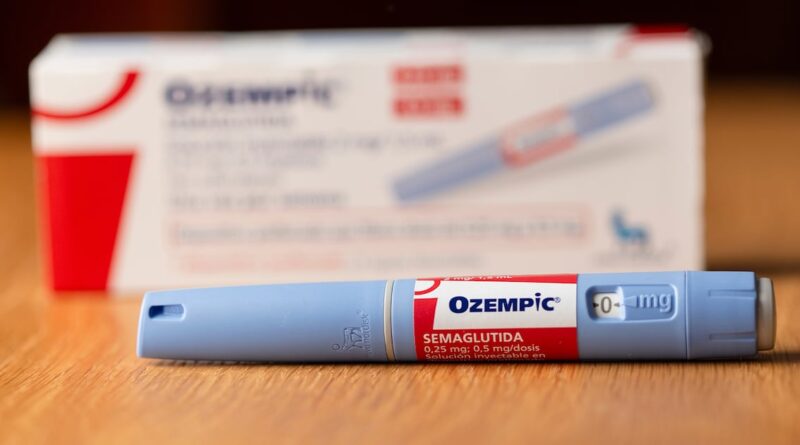Employers Seek Telehealth Companies to Cut Costs of Weight Loss Shots.
Telephone companies Hims & Hers Health Inc., Noom Inc. and Sesame Inc. have attracted individual consumers with affordable versions of popular weight loss pills such as Ozempic and Wegovy. Now, they’re chasing employers, too, as medicine becomes more in demand.
After Noom began offering a bundled copy of Wegovy for $149 a month, CEO Geoff Cook said he was “really surprised” by the level of employer interest. “Advertising seemed to get people out of the woodwork,” Cook said in an interview. “Obviously they were already doing research on whether this could be a solution for their employees.”
Although Noom had offered a range of drugs such as Ozempic since May 2023, there has been little employer interest due to cost. Brand-name drugs, made by Novo Nordisk A/S and Eli Lilly & Co., can cost upwards of $1,000 a month.
As more people flock to GLP-1 drugs for weight loss, employers who cover them are suffering from anxiety. About 14 percent of employers who pay for weight-loss drugs are considering reducing their use because of the cost, according to a survey by consulting firm Willis Towers Watson Plc. About 70 percent of drug-free businesses said cost was the main barrier, while about half said they were interested in exploring less expensive alternatives.
So-called weight loss drugs have emerged as a more cost-effective option. US regulators allow certain pharmacies to make copies of drugs when brand-name drugs, such as Novo, are in short supply, without requiring them to go through the same approval process as brand-name drugs.
Currently, bankers estimate annual sales of compounded drugs at least $1 billion as hundreds of thousands of Americans turn to phone companies and compounding pharmacies for cheaper forms of drugs.
Drugmakers Lilly and Novo have raised concerns about the quality of the knockoffs, saying some of the compounded drugs they made were contaminated with bacteria or chemical impurities. Television companies like Hims are pushing back, saying the drugs they sell are safe and effective.
Risks Ahead
Addiction to mixed drugs also comes with risks for employers. The supply issues that caused some non-online versions are beginning to be resolved, which may prevent the continued availability of integrated versions. In early October, the FDA announced that Lilly was able to meet demand for its drugs Mounjaro and Zepbound. When the shortage was announced, the FDA initially banned the chemical compounder from continuing to make copies of Lilly’s drugs, although that decision has since been tied up in litigation.
Noom, Hims and Sesame said they do not sell Lilly’s compounded drugs, and that the end of the Zepbound shortage will not affect their businesses.
Novo, too, is working to increase the supply of its weight-loss drugs, which could affect the supply of combination drugs with semaglutide, the active ingredient in Novo’s Ozempic and Wegovy. But Sesame’s president and co-founder, Michael Botta, suggested that’s a far-reaching concern for employers focused on getting their weight-loss plans right. “Employees want this, it’s becoming a frequent HR question,” he said.
Botta said at least one large health care organization reached out to Sesame to explore a partnership that would offer weight-loss drugs to workers who have full insurance but whose plans excluding name types. The health care system wants to keep its workers, who are in high demand and can easily go to other competing employers, Botta said.
He said Sesame is also seeing interest from companies with gig-work models, where workers are classified as independent contractors and do not receive full health insurance benefits. . Those companies want to negotiate with Sesame at a discounted rate so they can provide low-cost access to medicine as a way to recruit and retain workers.
“It happens a lot in industries where there’s real competition to keep workers,” such as health care, child care and home health services, Botta said. In the past, employers were “absolutely reluctant” to include over-the-counter drugs in benefits, he said. But cheap compounded drugs make it “more reasonable.”
Meanwhile, Noom last week said that recruits who buy into the “behavior modification” weight loss program, which includes exercise equipment, high-protein shakes and structured exercise plans , they may choose to give employees access to discounts on weight loss medications. “This option enables employers to provide comprehensive weight loss solutions and affordable access to GLP-1 without covering the cost of GLP-1 medications themselves,” Noom said in a news release. announcing a new program.
Written by Jo Constantz and Madison Muller
#Employers #Seek #Telehealth #Companies #Cut #Costs #Weight #Loss #Shots
